Search Definitions
Browse Content (p. 263)

Definition
Montezuma - Last Ruler of the Aztecs
Montezuma (aka Moctezuma), or more correctly, Motecuhzoma II Xocoyotzin, meaning 'Angry Like A Lord’, was the last fully independent ruler of the Aztec empire before the civilization's collapse after the Spanish Conquest in the early 16th...
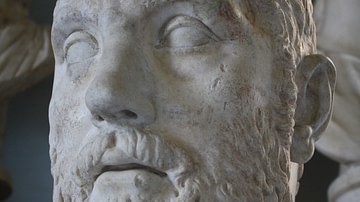
Definition
Macrinus
Macrinus was Roman emperor from April 217 to June 218 CE. It is a story that has been told countless times before - an emperor is assassinated leaving no heir or successor. On April 8, 217 CE Roman Emperor Caracalla was murdered, supposedly...

Definition
Sophocles
Sophocles of Kolōnos (c. 496 - c. 406 BCE) was one of the most famous and celebrated writers of tragedy plays in ancient Greece and his surviving works, written throughout the 5th century BCE, include such classics as Oedipus Rex, Antigone...
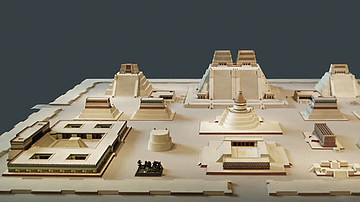
Definition
Tenochtitlan
Tenochtitlan (also spelled Tenochtitlán), located on an island near the western shore of Lake Texcoco in central Mexico, was the capital city and religious centre of the Aztec civilization. The traditional founding date of the city was 1345...
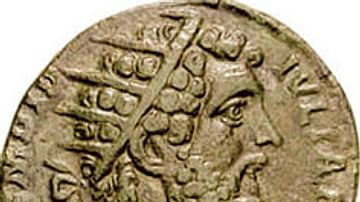
Definition
Didius Julianus
Didius Julianus was Roman emperor from March to June 193 CE. On March 28, 193 CE Roman Emperor Pertinax was assassinated by the Praetorian Guard, and like his predecessor Commodus, he left no apparent successor. Two possible claimants presented...
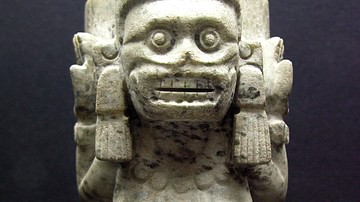
Definition
Mictlantecuhtli
Mictlantecuhtli (pron. Mict-lan-te-cuht-li) or 'Lord of the Land of the Dead' was the Aztec god of death. He ruled the underworld (Mictlán) with his wife Mictecacíhuatl. Mictlantecuhtli was worshipped and feared across Mesoamerica. The god...
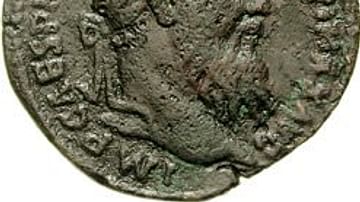
Definition
Pertinax
Pertinax was Roman Emperor for three months in 193 CE and, as successor to Commodus, it was hoped that he would restore much needed sobriety to the office of emperor. However, the former teacher, as well as putting in order the affairs of...

Definition
Xochipilli
Xochipilli or the 'Prince of Flowers' was the Mesoamerican god of summer, flowers, pleasure, love, dancing, painting, feasting, creativity and souls. He is a benevolent manifestation of Piltzintecuhtli, the young sun god who was himself a...

Definition
Sun Stone
The Aztec Sun Stone (or Calendar Stone) depicts the five consecutive worlds of the sun from Aztec mythology. The stone is not, therefore, in any sense a functioning calendar, but rather it is an elaborately carved solar disk, which for the...

Definition
Minotaur
In Greek mythology, the Minotaur was a monster with the body of a man and the head and tail of a bull. The Minotaur was the offspring of the Cretan Queen Pasiphae and a majestic bull. Due to the Minotaur's monstrous form, King Minos ordered...